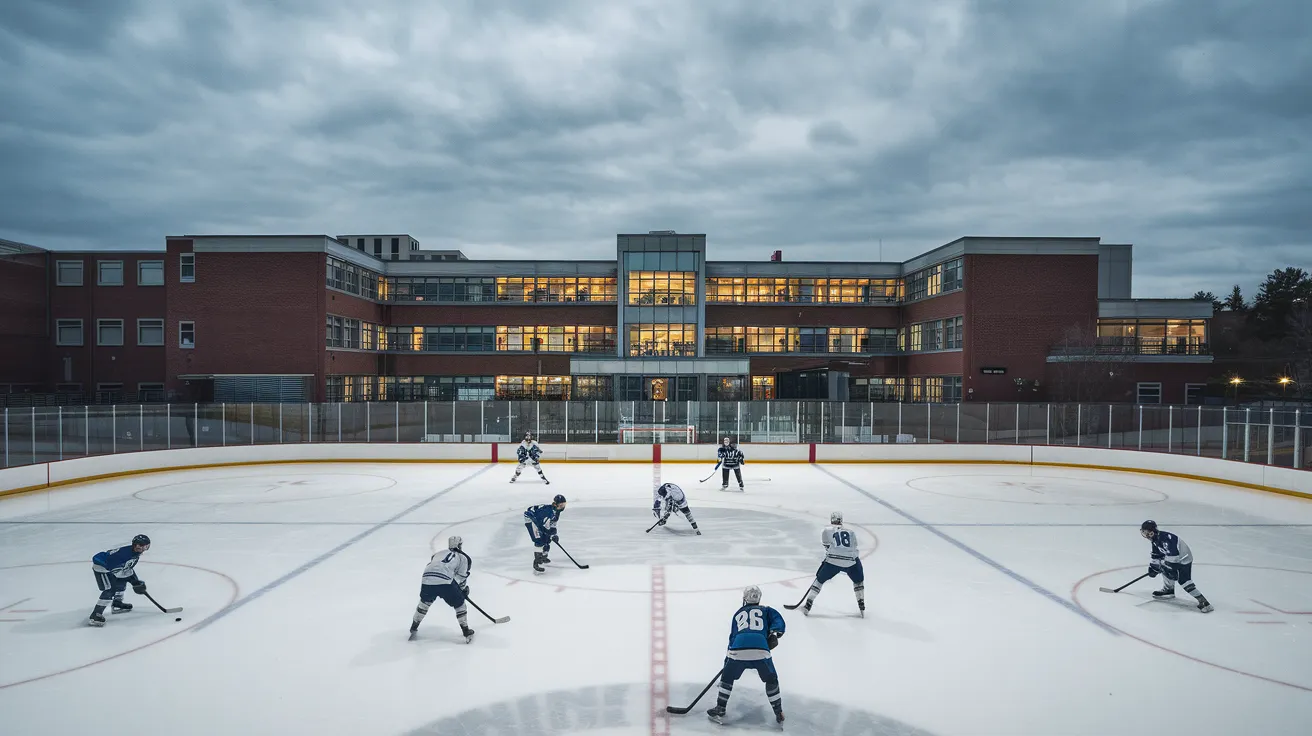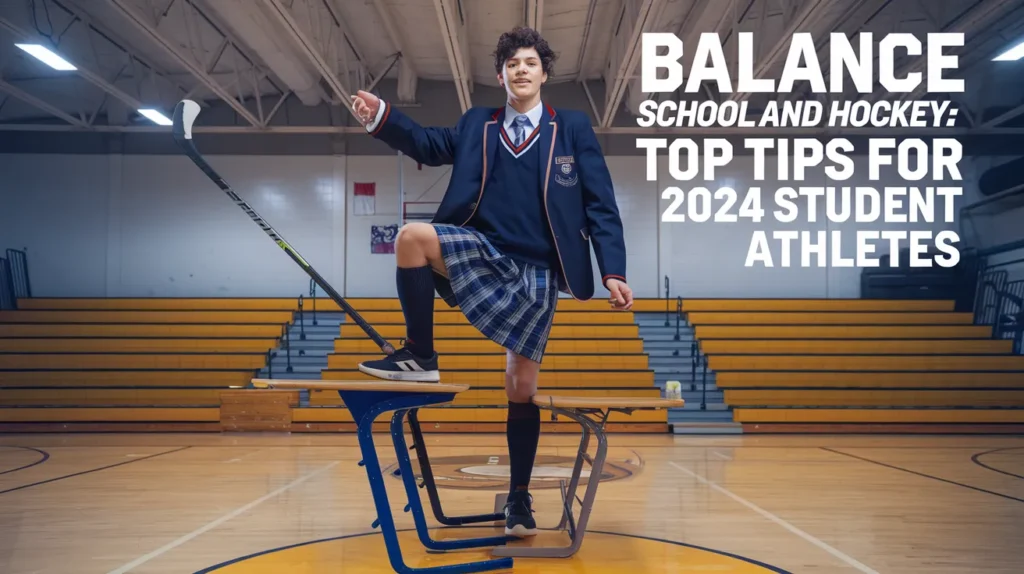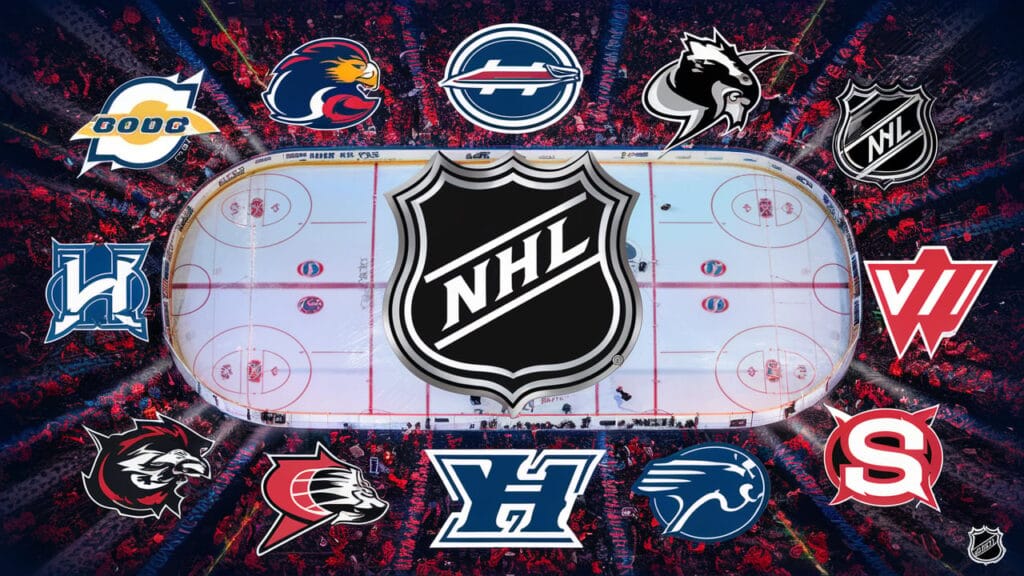How to Balance School and Hockey
Balancing school and sports can be challenging for student-athletes, especially those juggling the demands of both education and competitive hockey. With the right strategies, however, it’s possible to excel both on the ice and in the classroom. In this article, we’ll explore effective time management tips and practical advice on how to balance school and hockey, ensuring student-athletes can thrive academically while pursuing their passion for the sport.
Time Management Tips for Student-Athletes
Time management for student-athletes is crucial in maintaining a balance between academics and hockey. A well-organized schedule can make the difference between feeling overwhelmed and staying on top of your responsibilities. The following are some crucial time-management advice:
Prioritizing Your Schedule
To successfully manage both school and hockey, you need to prioritize your activities. Identify the most critical tasks—whether it’s a big exam or an important game—and allocate time accordingly. A good rule of thumb is to plan your week ahead, ensuring that you balance your time between schoolwork, practice, and personal life.
Creating a Balanced Routine
A balanced routine is like the foundation of a strong hockey team; without it, things can fall apart quickly. Incorporating regular study sessions, practice times, and breaks into your routine will help you stay disciplined and ensure you don’t neglect any aspect of your life. Remember, consistency is key.
Maximizing Productivity
Working cleverly is just as important as working hard. Maximizing productivity can involve techniques like time-blocking, where you dedicate specific hours to particular tasks, or the Pomodoro Technique, which encourages short bursts of focused work followed by breaks. This can help you maintain energy and focus throughout the day.
Balancing Academics and Sports: A Student-Athlete’s Guide
Balancing school and sports requires a strategic approach to ensure neither is compromised. Let’s explore some strategies to help student-athletes succeed both academically and athletically.
Setting Academic Goals
Setting clear academic goals helps you stay focused on your studies. Whether it’s aiming for a certain GPA or completing assignments on time, having goals keeps you motivated and accountable. Just as you set goals for improving your hockey skills, your academic targets should be specific, measurable, and achievable.
Read More: New Football Rules 2024: How They Will Change the Game

Staying Organized with Schoolwork
Organization is the backbone of student-athlete time management. Keeping track of assignments, tests, and other academic responsibilities in a planner or digital calendar ensures you never miss a deadline. This also allows you to allocate adequate time for studying, even during busy training periods.
Importance of Rest and Recovery
Just as you need rest to recover from physical exertion in hockey, your mind needs downtime too. Rest is essential for preserving mental and physical health. Ensuring you get enough sleep and taking breaks when needed can help you stay sharp in both school and on the ice.
Nutrition and Its Role in Performance
A balanced diet plays a significant role in how well you perform both in school and in hockey. Proper nutrition fuels your body and brain, giving you the energy and focus needed to excel in both areas. Make sure to include a variety of nutrients in your diet to support overall health and performance.
Seeking Support from Coaches and Teachers
Don’t hesitate to seek support from your coaches and teachers. They understand the demands of being a student-athlete and can offer valuable advice or adjustments to help you manage both roles effectively. Whether it’s getting extra help with schoolwork or adjusting practice schedules, support is available if you ask.
Leveraging School Resources
Many schools offer resources specifically for student-athletes, such as tutoring services, academic advisors, or study halls. Take advantage of these resources to stay on top of your academic responsibilities. They can provide the extra support needed to balance school and hockey effectively.
People also ask
How is balance important in hockey?
Balance is crucial in hockey for stability, agility, and executing precise movements on the ice.
How to balance training and school?
To balance training and school, create a structured schedule, prioritize tasks, and maintain open communication with coaches and teachers.
Why is hockey good?
Hockey promotes physical fitness, teamwork, and mental resilience, making it a rewarding and challenging sport.
What are the physical demands of field hockey?
Field hockey requires endurance, speed, agility, and strong cardiovascular fitness to sustain high-intensity play.
Conclusion
Balancing school and hockey is no easy feat, but with the right strategies and support, student-athletes can achieve success in both arenas. By prioritizing your time, setting clear goals, staying organized, and seeking help when needed, you can excel academically while continuing to pursue your passion for hockey.
FAQs
1. How can I manage my time better as a student-athlete?
Prioritize your tasks, create a balanced routine, and use time management techniques like time-blocking to stay on top of your responsibilities.
2. What should I do if I’m struggling to balance school and hockey?
Speak with your coaches and teachers for support and consider leveraging school resources like tutoring or study halls.
3. How important is rest for a student-athlete?
Rest is crucial for both physical and mental recovery, ensuring you perform well in both academics and sports.
4. Can good nutrition really impact my academic performance?
Yes, a balanced diet provides the necessary energy and focus to excel in both school and hockey.
5. What are some tips for staying organized with schoolwork?
Use a planner or digital calendar to track assignments and tests, and allocate time for studying even during busy training periods.




